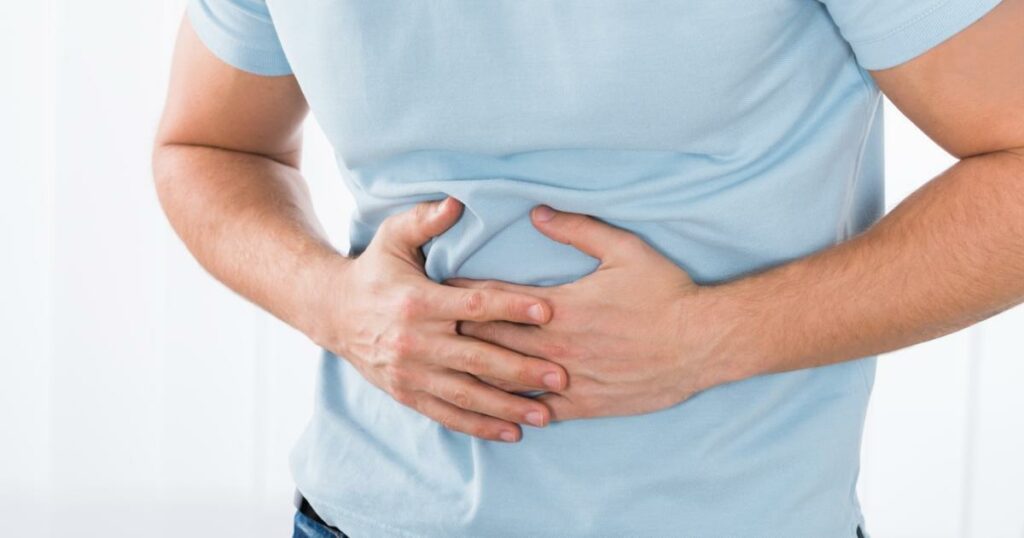‘Tis the Season for Digestive Glee: Managing Trapped Wind During Christmas
As the festive season rolls around, so does the abundance of delicious, indulgent dishes that make our taste buds sing. However, alongside the joyous celebrations, many people experience a less-than-festive side effect: intestinal gas & trapped wind. Often synonymous with Christmas dinners and holiday feasts, this phenomenon can put a damper on the merriment.
Understanding our embarrassing bodily noises, their causes and discovering ways to alleviate them, means we can ensure a more enjoyable holiday season. So stop clearing the room and unbuttoning jeans, let’s talk trapped wind and how you can manage it this festive season and beyond!

Why Do We Get Trapped Wind During Christmas?
There can be many reasons why the human whoopee cushion comes to life at this time of year, here are some key culprits for trapping wind.
1. Dietary Changes:
Don’t blame the sprouts! During the holidays, our diets tend to shift dramatically. Indulging in rich, fatty foods, sugary treats, and alcoholic beverages can disrupt the normal functioning of the digestive system. Foods high in carbs, like stuffing and roast potatoes, and those containing artificial sweeteners or high levels of fibre, such as Brussels sprouts, can contribute to increased gas production.
2. Eating Habits:
As odd as it might sound, the pace at which we consume our meals also plays a role. During festive gatherings, we might eat faster and swallow more air, leading to bloating and gas. Moreover, overeating puts additional pressure on the digestive system, exacerbating the issue. Eat slowly and mindfully (internal link)
3. Stress and Anxiety:
The holiday season, despite its joyous nature, can be stressful. Increased stress and anxiety levels can affect gut health, disrupting the balance of beneficial bacteria in the digestive tract and leading to gastrointestinal discomfort.
How to Avoid Getting Gassy
Take time to savour each bite, chew slowly, and avoid gulping down food hastily. Mindful eating reduces the amount of air ingested and aids in better digestion.
2. Balance Your Diet:
Create a balanced plate that includes fibre-rich foods alongside protein and healthy fats. Incorporate probiotics like yogurt or fermented foods to promote a healthy gut microbiome.
3. Stay Hydrated:
Water aids digestion and helps in moving food through the digestive tract, preventing constipation that can contribute to gas build-up.
4. Limit Trigger Foods:
Identify foods that trigger gas and try moderating their consumption. For instance, if beans or cruciferous vegetables lead to discomfort, consider smaller portions or alternative options.
5. Exercise: Postprandial exercise, that is exercise after a meal, helps to stimulate the muscles of the digestive tract, promoting more efficient movement of food and gas through the system. Movement, especially activities that involve bending, twisting, or gentle bouncing, may help facilitate the release of trapped gas. Who’s up for Twister?
How to Get Rid of Trapped Wind – Politely
Certain vitamins and supplements can support gut health alongside the techniques above, whilst each of us different, here are some of my favourite bloat busting supplements:
Probiotics: These supplements contain live beneficial bacteria that aid in maintaining a healthy balance in the gut flora, improving digestion and reducing gas.
Digestive Enzymes: Supplements with enzymes like amylase, lipase, and protease assist in breaking down food, reducing the likelihood of bloating and gas.
Vitamin B Complex: Essential for overall health, B vitamins support proper digestion and can alleviate gastrointestinal issues. (link to daily essential vitamins)
Milk Thistle: A herbal powerhouse packed with silymarin, a potent antioxidant, his anti-inflammatory properties to help soothe the digestive tract and help prevent uncomfortable boating and gas.
Apple Cider vinegar: a well-known partner to assist a healthy metabolism and in breaking down what we eat more efficiently. It reduces the likelihood of gas associated with rich festive foods through balancing tummy acidity and helping the breakdown of food to be more efficient.
As we gather with loved ones and indulge in festive meals, understanding the triggers of trapped wind & intestinal gas during Christmas, and employing strategies to mitigate its effects, can significantly enhance our holiday experiences. By embracing mindful eating, balancing our diets, and incorporating supplements that support gut health, we can ensure a merrier, more comfortable holiday season for everyone around the table.




